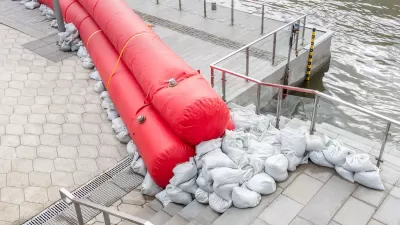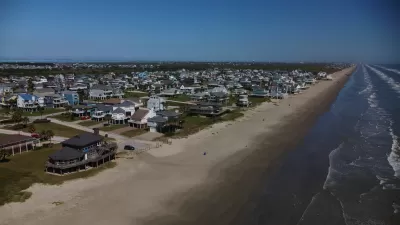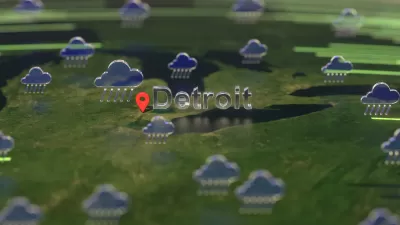The 4th National Climate Assessment brought the reality of climate change to the regional and local level. The Carolinas provide a particularly poignant case study.

Charles Duncan and Abbie Bennett provide regional details of the effects of climate change for the Carolinas, as predicted by the 4th National Climate Assessment, released by the federal government over the Thanksgiving holiday weekend.
"Climate change will cause more heat waves, flooding and worse storm impacts, and change life for people in the Carolinas," according to the article. "Higher sea levels will bring more and worse coastal flooding, a warming ocean will bring stronger storms, and extreme heat waves will become longer and more frequent in the Southeast," more specifically.
As detailed by the article, the recent history of the Carolinas and the rest of the Southeast is one of a changing climate, with recording flooding caused by hurricanes Matthew and Florence, records for costs incurred by weather events, and record tides just last week in Charleston.
The article stops short, however, of connecting the dots between the predictions of the report and any of the policies in place in southeastern states to mitigate the causes or the effects of climate change.North Carolina in particular has provided a compelling example of a state adjusting its approach to climate change in recent years, with mixed results from an environmental perspective in a period of rapid growth.
For more regional assessment of the predictions included in the 4th National Climate Assessment, see an article by Grist also shared on Planetizen recently.
FULL STORY: White House: 1,500% jump in coastal flooding, unprecedented heat waves for Carolinas

Alabama: Trump Terminates Settlements for Black Communities Harmed By Raw Sewage
Trump deemed the landmark civil rights agreement “illegal DEI and environmental justice policy.”

Planetizen Federal Action Tracker
A weekly monitor of how Trump’s orders and actions are impacting planners and planning in America.

The 120 Year Old Tiny Home Villages That Sheltered San Francisco’s Earthquake Refugees
More than a century ago, San Francisco mobilized to house thousands of residents displaced by the 1906 earthquake. Could their strategy offer a model for the present?

In Both Crashes and Crime, Public Transportation is Far Safer than Driving
Contrary to popular assumptions, public transportation has far lower crash and crime rates than automobile travel. For safer communities, improve and encourage transit travel.

Report: Zoning Reforms Should Complement Nashville’s Ambitious Transit Plan
Without reform, restrictive zoning codes will limit the impact of the city’s planned transit expansion and could exclude some of the residents who depend on transit the most.

Judge Orders Release of Frozen IRA, IIJA Funding
The decision is a victory for environmental groups who charged that freezing funds for critical infrastructure and disaster response programs caused “real and irreparable harm” to communities.
Urban Design for Planners 1: Software Tools
This six-course series explores essential urban design concepts using open source software and equips planners with the tools they need to participate fully in the urban design process.
Planning for Universal Design
Learn the tools for implementing Universal Design in planning regulations.
Clanton & Associates, Inc.
Jessamine County Fiscal Court
Institute for Housing and Urban Development Studies (IHS)
City of Grandview
Harvard GSD Executive Education
Toledo-Lucas County Plan Commissions
Salt Lake City
NYU Wagner Graduate School of Public Service





























